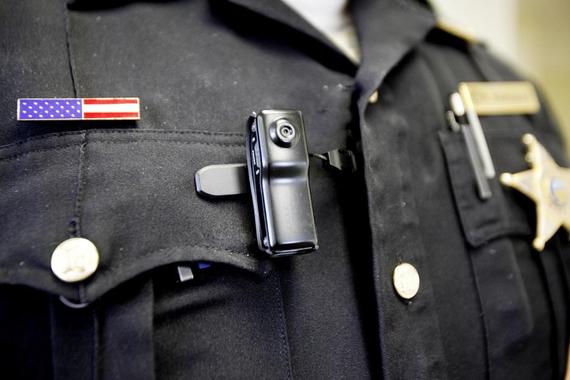The United States is currently tangled up in a racially charged debate around police violence, or maybe better put, excessive and biased use of force against people of color.
We have seen riots and demonstrations over the past few weeks, reminiscent of the worst days of the '60s and '70s, and the inflammatory rhetoric, from all sides, is tragic.
I will not comment on any specific events, yet clearly we have a problem, and just as clearly we need to resolve it. With a good part of the world embroiled in sectarian hatred and killing, the United States should set an example -- if not of brotherhood then at least of nonviolent resolution of differences.
Yet, I'm concerned that we have begun to approach social problems with solutions based on technology as opposed to root cause, and are thus using Digibabble to perpetuate and possibly aggravate as opposed to solve.
Military drones are a great case in point. No doubt they protect soldiers, create fear and, when the stars align, allow for targeted operations with little "collateral damage" -- yet in the aggregate they are solving nothing (see Season 4, Episode 1 of Homeland or read the news) and, in fact, might even be extending the conflicts, as we rarely examine the systems that are creating the kind of hatred that leads to violence, murder and mayhem.
As I am in New York this weekend, allow me to use my hometown as an example of where we are going wrong.
Last week, in response to all of the unrest in the United States fueled by confrontations with various police forces, President Obama requested $75 million in government funding to provide 50,000 body cameras to local police departments across the United States.
The idea is simple -- we all watch crazy GoPro videos, right? They show us reality. This would be the same: Camera-up a cop and all is solved; we will have proof of their bad behavior.
Were it so simple!
Just look at the situation in New York where a video of the altercation between Eric Garner and the police is clear as day... you would think. But only as clear as what you want to see/think you are seeing/are able to see, and the outcome: no convocation and massive protests, giving weight to the argument that video will not solve our core problem of mistrust and fear -- on all sides.
Mary D. Fan, a criminal law professor at the University of Washington School of Law and a former federal prosecutor, said:
"We shouldn't just think of video as the safeguard of truth -- 'Now we have incontrovertible evidence of the truth of what happened'...it isn't necessarily the magic bullet, that now we know the truth and that we'll all agree, we'll see the same thing and agree on the same thing."
And there you have it: It's as simple as any basic psychology test -- show a group of people the same thing, from different angles, with a different filter, with a different spin, and each will end up with a different narrative.
I won't even waste time commenting on the lack of consistent protocol for keeping the cameras on; that in and of itself is enough to render this whole program a wasted exercise, but so it goes....
Finally, let me point out that video exists, today, for almost everything we do; so while spending a fortune buying "reality" kits for the police might seem like a great idea to the bureaucrats, let me point out what the officer who was acquitted in the Garner case in New York said about filming in his testimony to the grand jury in New York:
And there you have it: The film will not solve any problems. Neither will GoPro tactics. That is pure Digibabble; it's the equivalent of putting your product on Facebook; creating a viral video; demanding social marketing; or uploading a film on YouTube and expecting results without deep understanding of your target audience or insight into its needs, and a story that effectively engages and connects.
Folks, we will not solve the problems of this world with drones and cameras -- not to be too hokey and I am not starry-eyed, but like John Lennon said, "All You Need is Love," and hard work....
Yet I don't want to leave anyone cynical, so consider this incredible thought. Listen:
You never change things by fighting the existing reality. To change something, build a new model that makes the existing model obsolete. - Buckminster Fuller
And there you have it: Drones and body cameras are fighting a reality that exists -- I get it -- and maybe it needs to happen in the short term, but unless we change the model, build a new one, we are stuck.
What do you think?

